The Burundian Murambi Hill is a natural coffee from Migoti Coffee is sourced via Zuka Coffee Trading
Burundi Coffee
Belgian colonial rule forced farmers to grow coffee in Burundi in the early 1900s. Thereafter selling it to the state for export mainly to Europe. Then in 1960 the sector was privatised. What followed was state control from 1976 to 1991. After that, a new wave of privatisation began in 1991. Next the civil war in the 1990s damaged coffee production. However, since then coffee has slowly emerged as a way to rebuild the agrarian sector and increase foreign exchange. Investment has increased and both private and state-run coffee companies operate. But the political crisis of 2015 and the economic crash have hindered the coffee sector’s potential.
As a small coffee-producing country in East Africa, Burundi has a population of 10.5 million and ideal conditions for coffee production. Its elevations range from 1500 to 2000 masl, where Arabica Bourbon coffee trees grow. Abundant rainfall also helps the cultivation. About 800,000 families own an average of 150-200 coffee trees per farm. They produce Arabica coffee that represents virtually 100% of Burundi’s national production. This bourbon variety is “sweet with bright acidity, big body, floral, citrus and spiced with wild notes.” For the past 25 years, Burundi’s average coffee production has been 26,700 tons per year.
Migoti Coffee
Mutambu Commune of Bujumbura
Migoti Coffee’s base of operations was built in Mutambu Commune of Bujumbura Province, Burundi in 2016. Our coffee washing station can process over 1000 tons of cherries per season. A 3-disk pulper and raised drying beds are used to produce fully washed, honey and natural coffee. The red bourbon cultivar of the Arabica varietal grows on different hills around the Migoti station at altitudes of 1600-1950 masl. This is the coffee used in Migoti’s products.
Sitting at 1850 masl (3°31’54.4″S 29°25’24.7″E), the Migoti processing station is high in the mountains above Lake Tanganyika to the east. It belongs to the Mumirwa region of Burundi – a narrow and steep highland region that runs north-south along the continental divide. The soil in our coffee farming community contains sand, loam and clay.
Migoti Coffee has been working with the surrounding community since 2016 to restore coffee production after years of neglect due to war and insecurity. In the past four years, Migoti has planted tens of thousands of new trees. The local farmers own the coffee trees and maintain micro-plantations on their family land on the hills surrounding the Migoti coffee processing station. Mogoti collect and purchase coffee cherries directly from over 700 coffee farmers, who own anywhere from 25 to 1500 trees on their family land. Migoti Coffee produced and exported over 500 tons of green coffee in the four past coffee seasons. The exported coffee has consistently received excellent cupping scores, frequently ranking as some of the best specialty coffee coming from Burundi.
Locally staffed
A local team runs the washing station. It has ten permanent staff and over 250 temporary workers. They work during the coffee season from March to June. Zephyrin Banzubaze (see photo) is the station manager. He manages all the staff and trains coffee farmers. He also receives and selects coffee cherries. Additionally, he oversees the coffee preparation and the drying process. Dry parchment coffee is stored and when milled prepares the final green coffee for export.
Most of the temporary staff are women. They work mainly on the raised drying tables. There, they turn the coffee as it dries and remove defective beans. These beans compromise the coffee quality. In addition to processing the coffee, Migoti also helps farmers through ongoing education. It teaches them how to prune and care for coffee trees. Furthermore, it also teaches them how to intercrop, plant shade trees, use green fertilisers, stabilise soils and use natural pest control. As a result of these efforts, Migoti expects that farmers can increase their yields by following best practices. They can produce five to ten times more coffee from their trees.
Murambi Hill
As of March 2021, the Migoti census of all the farmers who provide coffee to them. Murambi Hill there are 174 farming families with a total of 74,566 trees. Many of the farmers intercrop growing edible plants that have wide leaves, as well as banana trees. These plants keep the weeds down, help keep moisture at the base of the trees, provide shade to the coffee and also feed their families. Coffee trees are grown on steep slopes of the hills. The steep slopes promote water runoff and good drainage.
Details of Burundian Murambi Hill
Starting brews:
| Brew Method | Ratio | Brew Method | Ratio | |
|---|---|---|---|---|
| Espresso | 1:2.3 (290sec) | AeroPress | 16.5g:200g (2min steep) | |
| Plunger | 50g:800g (4.25 mins) | Pour over/filter | 19g:300g |
Transparency Information
| Sourced from | Migoti via Zuka Trading |
|---|---|
| FOB price | Not provided |
| Cupping score | 83.75 |
| Producer / Organisation | Migoti coffee co-operative |
| Lot size bought | 1 x 60kg bags |
| Relationship | We have a working relationship with Dan Brose, the owner of Migoti since 2019. This is our fourth season dealing with Dan, who visits us when he is in Cape Town. |
Images
From Dan Brose – Migoti coffee
Sources:
- Migoti documentation on Migoti coffee and Murambi Hill
- Sevenoaks Murambi Hill documentation


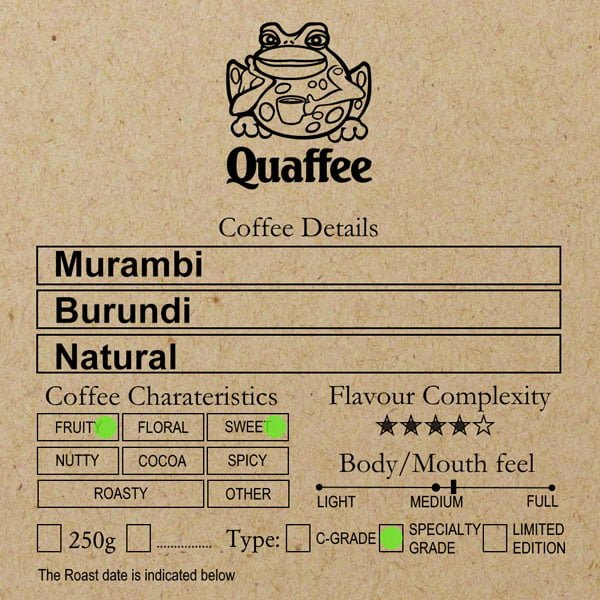

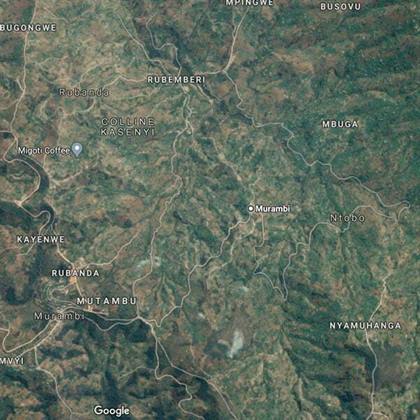
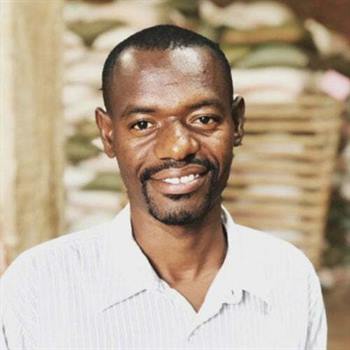


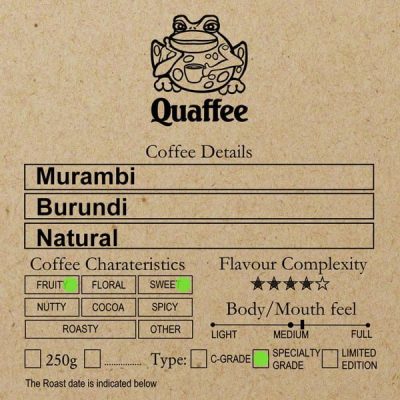
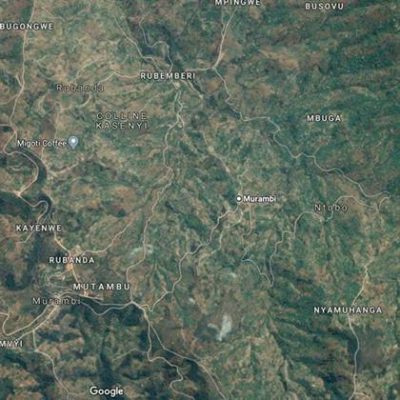
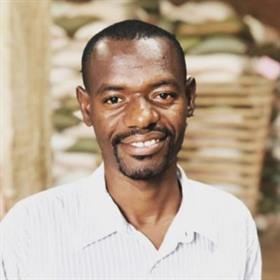
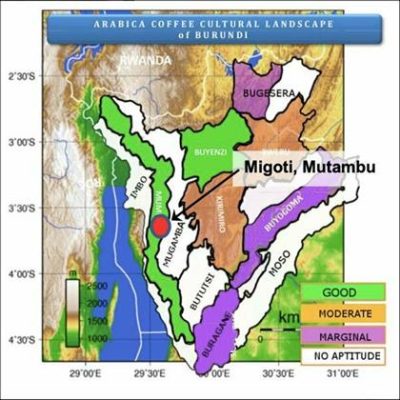
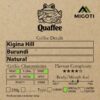




Reviews
There are no reviews yet.